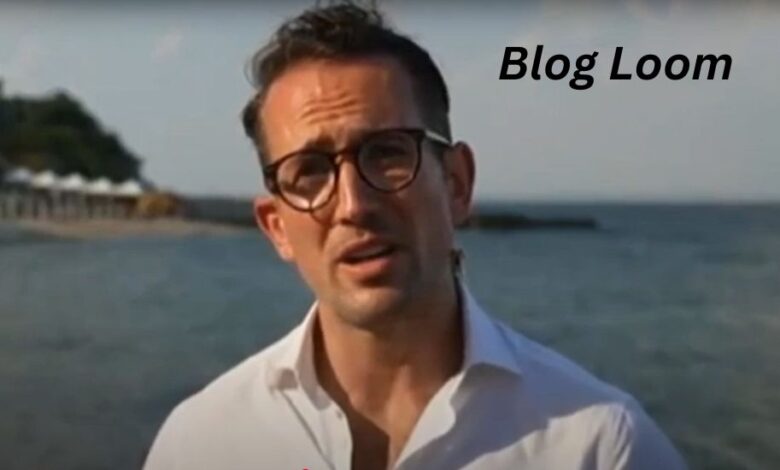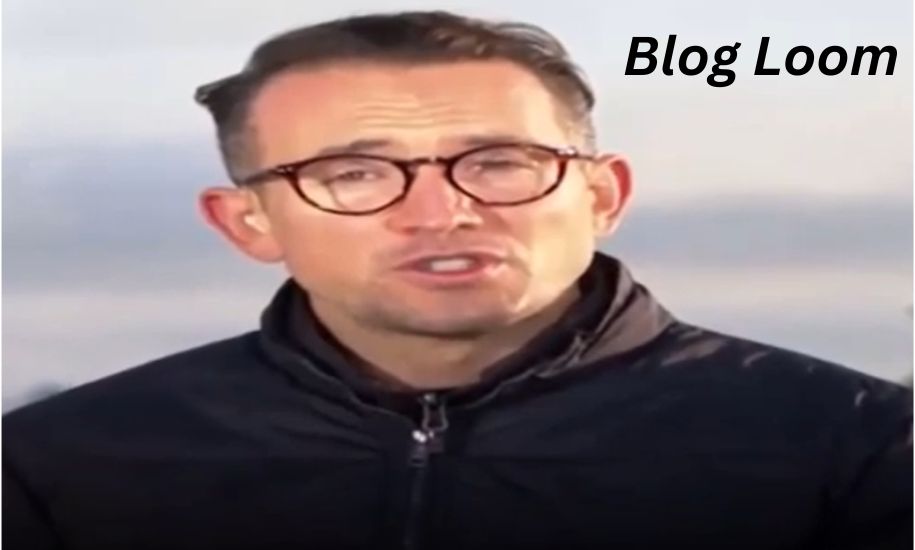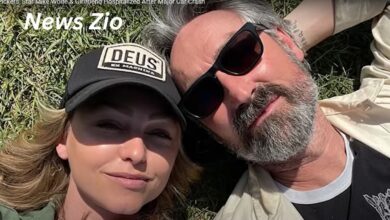Where is Hugo Bachega From? Meet the BBC Reporter in Beirut

When international news breaks from the world’s most volatile regions, we often hear calm, professional voices bringing us the facts. One of those voices is Hugo Bachega, a BBC journalist who has covered war zones, political crises, and human tragedies with remarkable dedication. Viewers around the world have heard his reports from Ukraine, the Middle East, and other hotspots. But as his work gains more visibility, a frequent question arises: “Where is Hugo Bachega from?” Closely tied to this curiosity is another: “Who is Hugo, the BBC reporter in Beirut?”
This article takes a deep dive into what is known about Hugo Bachega’s background, career, and reporting. While much about his personal life remains private, a patchwork of information from professional profiles, news segments, and public reports helps paint a clearer picture of his origins, his career path, and his role at the BBC.
The Curiosity Behind Hugo Bachega’s Origins
Journalists often remain behind the scenes, allowing the stories they cover to take center stage. Unlike celebrities, correspondents rarely share personal details. This discretion helps them stay safe in dangerous zones and maintain professional objectivity. However, when a journalist becomes highly visible—reporting from high-profile crises such as the Russia–Ukraine war or conflicts in the Middle East—audiences begin to wonder: who are they, and where do they come from?
Hugo Bachega has inspired such curiosity. His fluent English, occasional Brazilian connections, and frequent Middle East reporting have sparked speculation. Some claim he is British, others Brazilian, while a few sources suggest he might hold dual nationality.
Early Career: From São Paulo to the World
What we do know about Hugo’s career is rooted in his journalism beginnings. Several reports suggest that Bachega began as an intern at Reuters in São Paulo, Brazil. If true, this points to a strong Brazilian connection—either by nationality, birthplace, or at least professional roots.
São Paulo, being Brazil’s largest city and a hub of international media, has long been a launchpad for global journalists. Starting here would have given Hugo access to multinational networks and international reporting standards. Reuters, known for its rigorous training and global perspective, would have provided him with the skills necessary to thrive on the international stage.
From there, his career expanded, eventually bringing him to one of the world’s most trusted news organizations: BBC News.
Hugo Bachega at the BBC
Today, Hugo Bachega is recognized as a foreign correspondent for BBC News, frequently appearing on major broadcasts and contributing to the BBC’s coverage of global affairs. His work often focuses on regions undergoing conflict, humanitarian crises, and political upheaval.
-
Ukraine Coverage: During the Russia–Ukraine conflict, Hugo was seen reporting from Kyiv and other parts of Ukraine, delivering updates under difficult and dangerous conditions. His calm yet urgent style helped audiences worldwide grasp the seriousness of unfolding events.
-
Middle East Coverage: Another significant area of focus has been the Middle East. Reports link him frequently to Beirut, Lebanon, suggesting that he is either stationed there or often deployed there as part of his coverage of the region. Beirut has historically served as a hub for foreign correspondents covering conflicts in Lebanon, Syria, and beyond.
-
Global Conflict Zones: Beyond Ukraine and Lebanon, Hugo has contributed to coverage across multiple continents, showcasing his adaptability and courage as a field journalist.

Is Hugo Bachega from Brazil, Britain, or Both?
This is the heart of the mystery. Different sources provide conflicting information:
-
Brazilian Connection:
-
His professional start in São Paulo strongly supports a Brazilian link.
-
Some outlets describe him as Brazilian or “Brazilian-born.”
-
His name itself, “Bachega,” is common in Brazil, hinting at cultural origins.
-
-
British Connection:
-
As a correspondent for the BBC, a British institution, he is sometimes described as a British journalist.
-
Some sources claim he was “born in London,” though this is less consistently reported.
-
It is possible he holds dual nationality—Brazilian and British.
-
-
Dual Identity Theory:
-
Many modern journalists with global careers have multicultural backgrounds.
-
Bachega could easily be British-Brazilian, educated or trained partly in one country and working internationally through another.
-
At this point, without an official BBC biography or a personal interview, the most responsible conclusion is that Hugo Bachega has strong Brazilian roots, possibly coupled with British ties.
Language and Skills
Hugo’s ability to report across continents suggests more than just journalistic skills. It reflects linguistic and cultural fluency. His fluency in English is obvious, but his Brazilian background implies he speaks Portuguese. Given his Middle East coverage, it is possible he has studied or learned Arabic phrases to assist with on-the-ground reporting. These multilingual skills are essential for navigating war zones and connecting with local sources.
Why is Hugo Associated with Beirut?
The repeated question “Who is Hugo, the BBC reporter in Beirut?” comes from his visibility in that region. Beirut, while not without its own instability, often serves as a base for foreign correspondents covering Lebanon, Syria, Israel/Palestine, and sometimes even Iraq. Being based there allows quicker deployment to regional hotspots.
Thus, when viewers hear Hugo reporting live “from Beirut,” it reinforces the perception that he is stationed there permanently. Whether he actually resides full-time in Lebanon or splits time between Beirut and London remains unclear. Still, his consistent reporting from the city links his identity strongly with the phrase “BBC reporter in Beirut.”
The Challenges of a BBC Foreign Correspondent
Understanding where Hugo is from also helps us appreciate the challenges he faces as a journalist. Covering conflict zones is not just about telling stories—it requires immense personal courage.
-
Safety Risks: Journalists in Beirut, Kyiv, or other hotspots face risks of violence, kidnapping, or military attacks.
-
Mental Health: Reporting on human suffering, displacement, and war takes a psychological toll.
-
Neutrality: Remaining unbiased while covering polarizing events is a hallmark of BBC’s reputation, and Hugo has demonstrated this in his calm, fact-driven reporting.
His background—whether Brazilian, British, or both—likely contributes to his resilience and adaptability in these difficult roles.
Public Perception and Media Curiosity
Unlike TV presenters or celebrity journalists, Hugo Bachega maintains a low personal profile. He does not appear to seek attention outside his reporting work. This quiet professionalism has paradoxically fueled online curiosity, with many blogs trying to piece together his origins. Audiences want to know not just what he reports, but who he is, and “where he’s from.”
Conclusion: Hugo Bachega’s Identity in Context
So, where is Hugo Bachega from? The most accurate conclusion is:
-
He is strongly connected to Brazil, likely by birth or heritage.
-
He has strong ties to the United Kingdom, either through citizenship, education, or career.
-
He is globally oriented, reflecting the BBC’s international mission.
-
He is widely associated with Beirut, given his frequent reporting from there.
Ultimately, Hugo Bachega is less defined by a single nationality or hometown and more by his role as a citizen of the world, a journalist dedicated to telling the stories that matter, regardless of borders.
At Blog Loom, we believe the fascination with journalists like Hugo reflects our need to understand not just the news, but the voices behind it. Hugo Bachega’s work is proof that in times of crisis, clear reporting can cross cultural and national boundaries.
For more information visit Blog Loom .




